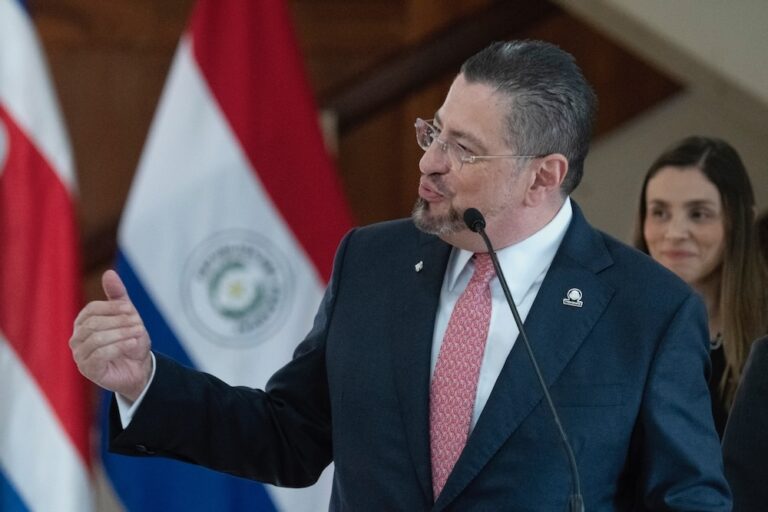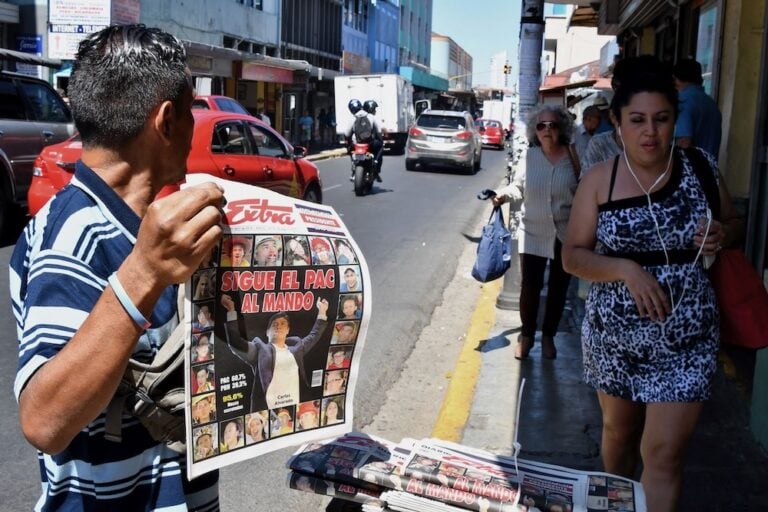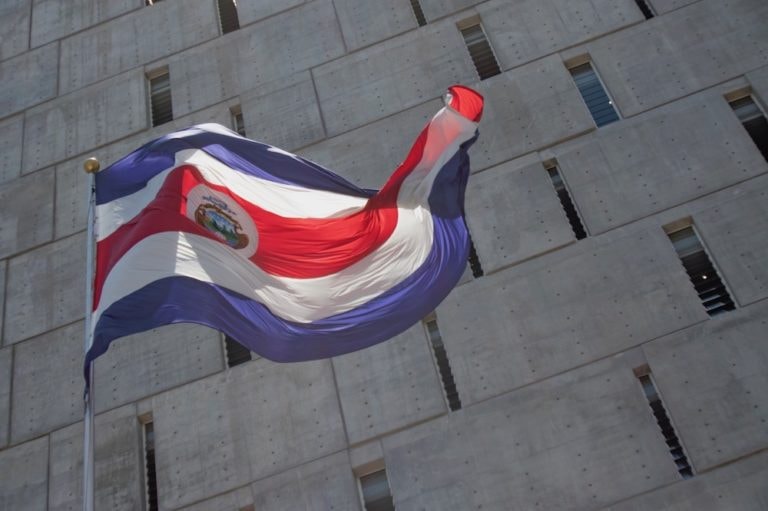(WPFC/IFEX) – The following is a 20 April 2001 WPFC press release: RESTON, Va. — The World Press Freedom Committee has submitted friend-of-the-court briefs to the Inter-American Commission on Human Rights on behalf of journalists in Costa Rica and Chile. In both cases, WPFC argues against criminal charges brought by public officials against the media […]
(WPFC/IFEX) – The following is a 20 April 2001 WPFC press release:
RESTON, Va. — The World Press Freedom Committee has submitted friend-of-the-court briefs to the Inter-American Commission on Human Rights on behalf of journalists in Costa Rica and Chile.
In both cases, WPFC argues against criminal charges brought by public officials against the media alleging “insult” to the officials’ honor and dignity.
The Costa Rica case was appealed to the Inter-American Commission after Costa Rica’s Supreme Court upheld a lower court’s decision to punish the country’s leading daily newspaper, La Nacion, for publishing reports originating in European newspapers about a Costa Rican diplomat’s alleged misdeeds.
The diplomat, Felix Przedborski, claimed his honor was insulted, and the courts agreed. The reporter, Mauricio Herrera Ulloa, was found guilty of publishing defamatory insults and was fined punitive damages. In addition, La Nacion was fined and forced to pay the diplomat’s legal fees. The newspaper was compelled to have its name listed in the Judicial Registry of Criminals and to remove all Internet links to its stories about Przedborski.
In the Chilean case, the Court found journalist Alejandra Matus guilty of violating the State Security Act and its provisions against insult, when she wrote a book alleging corruption in Chile’s judicial branch.
On the day of its publication, all copies of The Black Book of Chilean Justice were seized by the government on orders of Servando Jordan Lopez, one of the judges on Chile’s Supreme Court. He claimed its publication violated Article 6b of Chile’s State Security Law, which allows imprisonment for anyone who “defames, insults or calumniates” officials including the President, state ministers, senators and members of the Supreme Court.
Matus fled the country and has been working in Miami. Recently, Chile’s legislature announced it intends to eliminate Article 6b, but charges against her still stand.
In its statements supporting the Costa Rican and Chilean journalists, the World Press Freedom Committee recommended elimination of all criminal forms of defamation and insult laws, pointing out that adequate redress for perceived libel exists already in civil statutes. “Because they carry the threat of imprisonment and/or fines,” the WPFC states, “insult laws have a chilling effect which interferes with the right of the press to impart valuable information, as well as the public’s right, and need, to receive that information.”
The WPFC argues that international human rights agreements specifically guarantee freedom of expression and of the press not just to protect positive or popular views. “Even those statements which may tend to shock or offend the subject or the public at large are protected by the language of these decisions,” the brief states. “Insult laws … fail free expression scrutiny because they provide governments and their officials shielding from reporting and commentary that is not available to the general public. In fact, government officials must be, and should be, subject to a higher degree of oversight than ordinary citizens.”
WPFC has strongly denounced the use of laws which improperly shield public officials from public scrutiny, and calls for the repeal of all “insult” or “desacato” laws. Such outdated laws exist in 18 Latin American countries, and in dozens of other nations as well.


